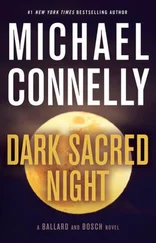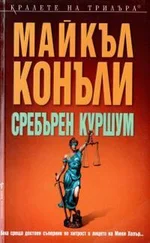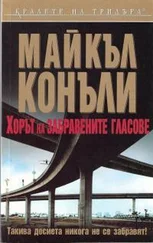The days in the jail fell into the same routine as the earlier stint, with my team coming in to conference most afternoons at three. It seemed that our nets had already been cast and we were in the stage where we were looking through the catch and devising our strategy. My energy and outlook remained high. I was confident in the case. I just wanted to get to it.
The only break from the routine came three days after my re-arrest when I was taken to the visitors’ center and sat down in front of my first ex-wife, Maggie McPherson. Her coming to see me embarrassed me and made my heart swell at once.
“Is anything wrong?” I said. “Is Hayley all right?”
“Everything’s fine out here,” she said. “I just wanted to see you. How are you, Mickey?”
I was ashamed of my situation and my jailhouse blues. I could imagine how I must appear to her, especially after her taking exception to the way I had looked outside jail.
“All things considered, I’m okay,” I said. “The trial’s soon and this will all be over.”
“Are you ready?” she asked.
“More than ready. I think we’re going to win this thing.”
“Good. I don’t want our daughter to lose her father.”
“She won’t. She’s what keeps me going.”
Maggie nodded and said nothing more on it. I read the reason for her visit as her checking on my health and state of mind.
“It means a lot to me that you came here,” I said.
“Of course,” she said. “And if you need anything, call me — collect.”
“I will. Thanks.”
The visit only lasted fifteen minutes but I came away from it feeling stronger. With family, as splintered as it was, behind me, I felt like I couldn’t lose.
Wednesday, February 5
The silk suit felt good against my skin. It eased the itch from the prison rash I had developed over most of my body. I sat quietly next to Jennifer Aronson at the defense table and savored the moment of pseudofreedom and relief. I had been taken to court for a hearing requested by the prosecution, which was seeking sanctions for alleged foul play on the part of the defense. But no matter what the cause, I was happy to be pulled out of Twin Towers for any reason for any amount of time.
Over the years I’d had many incarcerated clients who exhibited and complained about prison rash. Visits to the jail clinic didn’t cure it or explain it. Its origin was unknown. It had been suggested that the industrial detergent used on the jail bedding and laundry caused it, or that there was something in the material used in the thin mattresses in the cells. Others said it was an allergic reaction to confinement. Still others called it the manifestation of guilt. All I knew was that I didn’t get it the first time around at Twin Towers and then I got it bad the second. The difference was that in between stays, I had been the root cause of another damaging internal investigation of the jail system. This made me think that the jail deputies were behind it — that the rash that kept me itching and awake at night was a form of payback. They had spiked my food or my laundry or my cell in some way.
I kept this belief to myself to avoid being considered paranoid. My physical decline and weight loss was continuing and I wanted no one to add concerns about mental acuity to the question of whether I could adequately defend myself. Maybe it was the suit or maybe it was the courtroom. All I knew was that my preoccupation with the malady went away as soon as I left the jail and was put on the bus.
On the way over, the bus had passed two painted murals depicting Kobe Bryant. The famed Lakers basketball star had been killed with his daughter and others in a helicopter crash only ten days earlier and already the street memorials were up in solemn testimony to his transcending mastery of his sport to reach iconic status, in a city where the climb to that level was already so crowded.
I heard the soft thud of the courtroom door closing and turned to see that Kendall Roberts had entered. She gave a secretive wave as she came down the center aisle. I smiled. She moved down the first row and sat directly behind the defense table.
“Hey, Mickey.”
“Kendall, you didn’t have to come all the way down. This probably is going to be a pretty quick hearing.”
“It’s still better than the fifteen minutes they give you at the jail.”
“Well, thanks.”
“Also, I wanted to—”
She stopped when she saw Chan, the courtroom deputy, moving toward us to order me to stop communicating with people in the gallery. I held my hand up to signal that I was halting the violation. I turned forward and leaned toward Jennifer.
“Do you mind telling Kendall that I’ll call her later when I can get to the phone in the module?”
“Not at all.”
Jennifer got up to whisper to Kendall and I went back to staring straight ahead and feeling the tension leak out of my muscles and spine. You never stopped looking over your shoulder in Twin Towers. I savored these moments when I didn’t have to worry.
Jennifer returned to her seat. I finally came out of my reverie and got to work.
“So,” I said. “What’s the update on Opparizio?”
I had gotten the word during a team meeting Monday that the Indians had finally located him when they followed Jeannie Ferrigno to a rendezvous at a hotel in Beverly Hills. They dropped her and stayed with Opparizio, tailing him to a house in Brentwood that was held in an impenetrable blind trust.
“Same,” Jennifer said. “They’re ready to go with the subpoena when you give the word.”
“Okay, let’s wait till next week. But if it looks like he might be getting ready to split town, we need to serve him. He can’t get away.”
“We know, but I’ll remind Cisco.”
“We also serve the girlfriend then and his two other associates holding shares in BioGreen. And all of it on camera so we can show the judge if they don’t show up.”
“Got it.”
I glanced over at the prosecution table. Berg was by herself today. No bow-tie backup. She was looking at a handwritten document and I guessed that she was rehearsing her argument. She sensed my gaze.
“Hypocrite,” she said.
“Excuse me?” I said.
“You heard me. You talk about tilting the board all the time and the prosecution not playing fair, and then you pull a stunt like this.”
“Like what?”
“I’m sure you know what this is about. Like I said and you heard, you’re a hypocrite, Haller. And a murderer.”
I looked at her for a long moment and I could see it in her eyes. She was a true believer. She had me down as a killer. It’s one thing when the cops think it — most of them can’t see the difference between a defense lawyer and a defendant. But in the world of trial lawyers, I had for the most part encountered respect from both sides of the aisle. That Berg believed I was capable of putting a man in a trunk and shooting him three times was a reminder of what I was facing at the trial ahead: a true believer who wanted to put me away forever.
“You’re so wrong,” I said. “You’re so blinded by the lies you’ve been told by—”
“Save it for the jury, Haller,” she said.
The verbal confrontation ended with Deputy Chan announcing that court was coming to order. Judge Warfield stepped through the door at the back of the courtroom and took the bench. She quickly got down to business on California versus Haller and invited Berg to explain her request for sanctions against the defense. The prosecutor took the document she had been studying to the lectern with her.
“Your Honor, the defense in this case has repeatedly accused the People of playing unfair with discovery, and yet it is the defense that has engaged in deception all along,” Berg began.
Читать дальше
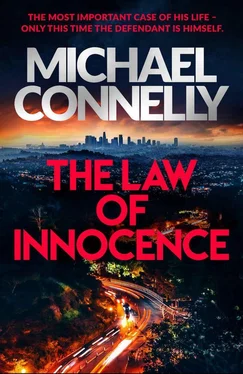

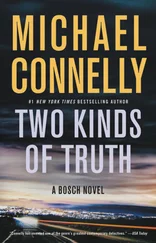


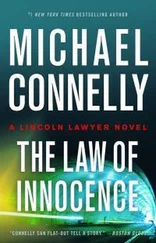

![Майкл Коннелли - The Night Fire [Harry Bosch - 22]](/books/405630/majkl-konnelli-the-night-fire-harry-bosch-22-thumb.webp)
